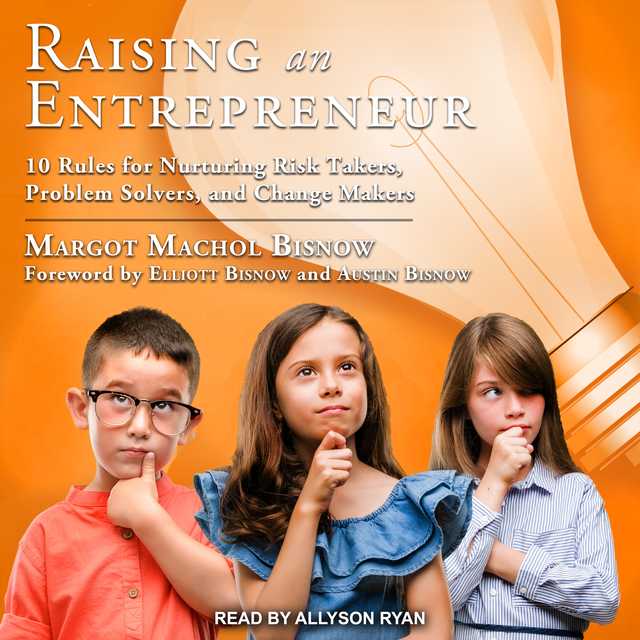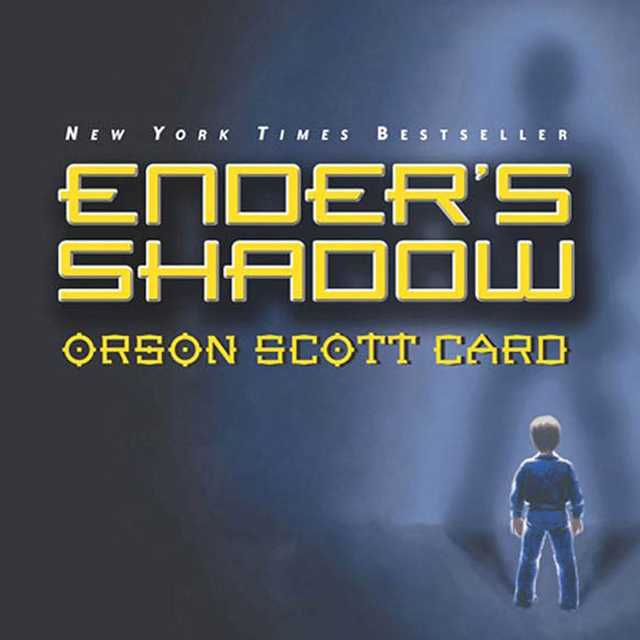Between Heaven and Mirth Audiobook Summary
“Between Heaven and Mirth will make any reader smile. . . . Father Martin reminds us that happiness is the good God’s own goal for us.” –Timothy M. Dolan, Archbishop of New York
From one of America’s most beloved spiritual leaders and the New York Times bestselling author of The Jesuit Guide to (Almost) Everything and Jesus: A Pilgrimage Father James Martin, SJ, comes a revolutionary look at how you can change your life and save your spirit through joy, humor, and laughter.
Martin shares how you can strike a healthy balance between spirituality and daily life and live as a joyful believer. In Between Heaven and Mirth, he uses scriptural passages, the lives of the saints, the spiritual teachings of other traditions, and his own personal reflections to show us why joy is the inevitable result of faith, because a healthy spirituality and a healthy sense of humor go hand-in-hand with God’s great plan for humankind.
Other Top Audiobooks
Between Heaven and Mirth Audiobook Narrator
James Martin is the narrator of Between Heaven and Mirth audiobook that was written by James Martin
Rev. James Martin, SJ, is a Jesuit priest, editor at large of America magazine, consultor to the Vatican’s Dicastery for Communication, and author of numerous books, including the New York Times bestsellers Jesus: A Pilgrimage, The Jesuit Guide to (Almost) Everything and My Life with the Saints, which Publishers Weekly named one of the best books of 2006. Father Martin is a frequent commentator in the national and international media, having appeared on all the major networks, and in such diverse outlets as The Colbert Report, NPR’s Fresh Air, the New York Times and The Wall Street Journal. Before entering the Jesuits in 1988 he graduated from the Wharton School of Business.
About the Author(s) of Between Heaven and Mirth
James Martin is the author of Between Heaven and Mirth
More From the Same
- Author : James Martin
- Jesus
- The Jesuit Guide to (Almost) Everything
- Seven Last Words
- Building a Bridge
- The Abbey
- Publisher : HarperAudio
- Abraham
- American Gods [TV Tie-In]
- Dead Ringer
- House of Sand and Fog
- Prey
Between Heaven and Mirth Full Details
| Narrator | James Martin |
| Length | 7 hours 49 minutes |
| Author | James Martin |
| Publisher | HarperAudio |
| Release date | March 06, 2012 |
| ISBN | 9780062099747 |
Additional info
The publisher of the Between Heaven and Mirth is HarperAudio. The imprint is HarperAudio. It is supplied by HarperAudio. The ISBN-13 is 9780062099747.
Global Availability
This book is only available in the United States.
Goodreads Reviews
Julie
October 24, 2011
I can't tell you how many times I've had people ask me, "How can you be a Happy Catholic?" They then go on to cite the problems currently in the Church, how hard life is in general, and so on and so forth.My answer is that happy does not mean cheerful. I'm not talking about a Pollyanna-ish insistence on always seeing the glass half full. I'm talking about a deep, underlying joy that comes from the peace of mind in knowing Jesus really has overcome the world, really is real, really does love me personally. Except in times of deep trouble or sorrow, when no one in their right mind would be able to say that they are happy, I have happiness as a foundation of my days. I must add that even in those times of trouble there is a peace lurking in the background reminding me that "all manner of things shall be well."I suppose that I am asked that because even the best of us tend to think that faith and religion aren't real unless they are sober, serious, and definitely not amusing, humorous, or joyful. This never made sense to me because I have had too many times when God makes his point to me using a "virtual" nudge in the ribs and a chuckle. There is that stunning moment when I realize what I've gotten very wrong and then that hilarious moment when I realize just how ridiculously wrong I am ... and somehow, you know, I wind up howling with laughter and things just never seem too bad after that.James Martin has written a book all about that very thing. He writes compellingly that holy people are joyful people, providing numerous examples of the people, their joy, and their levity ... up to and including Jesus. The main premise is that joy, humor, and laughter help us live more spiritual lives, relate to others better, and connect with God more easily.Martin's examination of scripture and Jesus' humor will be especially valuable to those who hesitate to think that humor and playfulness have a place in faith. His case studies in scriptural joy look at a psalm, the visitation of Mary to Elizabeth, and 1 Thessalonians. It gives us a fresh look at the familiar passages and perspective on the way the hearers would have understood it when the scripture was new.I also really appreciated the chapter where Martin addressed the problem of living joyfully when life is difficult. He discusses the fact that joy doesn't mean one is happy all the time, how to find joy during times of pain, what to do if you are not a funny person, and what to do when working or living in a joyless environment. This section is almost a primer on how to look at our lives with both gravity and lightheartedness. It is one that more people than Christians would benefit from.Naturally in a book of this sort, anecdotes and jokes are larded throughout the text. They always are illustrations of the point that Martin is making and yet, in themselves, contribute to helping look at things just a touch less seriously or from a different point of view. My favorites were the ones that came from real life, as those are the sort that are most genuinely funny. Those are often the sort that help us in painful times, as Martin points out.Then she recounted the story of two friends whose mutual friend had died. "They missed her terribly," said [Margaret] Silf. "They planted what they thought were daffodil bulbs on her grave and grieved all winter. In the spring they returned to the grave to pay their respects and discovered a wonderful crop of ... onions! They laughed until they cried--and they are convinced their friend was right in there laughing with them.There were a few places where Martin was going so fast that he skimmed on providing all the information we needed for the book to be as solid as it could. The primary place I noticed this, and the one that kept bothering me, was his lack of distinction when he compared Zachariah's doubt at the promise of a son after many years of childlessness (who would become John the Baptist) and Mary's reasonable, straight-forward question about how she could become pregnant if she'd never "known" a man. Zachariah, the experienced priest who should have known better than to doubt, is struck mute by the angel. The simple question of the young girl, Mary, is answered. Martin's joke in the footnote that Gabriel is gentler with women was amusing but completely inaccurate and that made me a bit wary of other such confident assertions about Scripture when they came up.Happily, there are not many instances of those problematic points. Those aside, this book is informative, engaging, and makes a solid argument for the case that joy and humor are integral parts of being human and the spiritual life. Certainly this book is much needed to help lighten the mood of those who believe that only serious attitudes will gain us the kingdom of Heaven. It most definitely is appreciated by those of us who occasionally must defend our faith because of our joy.Highly recommended.
Jennifer
December 07, 2011
If Stephen Colbert says that James Martin is ok, then James Martin is ok! :)Seriously, tho - a book about finding and keeping joy in your heart, whether you are a Catholic or not - something I know I needed to hear (read) and something that I think more of us need to consider. Joy is different than happiness and is something that we can have with us at all times - which Martin shows by personal stories and accumulated wisdom. I was glad to see how kindness figures into joy as I think kindness is so important and so overlooked. The story that stuck with me the most is the one of white paint - all of the good things in our life can be considered a can of white paint, but all we can see is the one drop of red paint, the bad or unhappy things, in the midst of all that white - andd soon everything looks red. I suppose that sounds overly simple but I think it says a lot. A very good book for anyone wishing for more joy and happiness in their life. Very recommended! (the book itself is well-written and humourous, with a few laugh out loud parts, especially in the footnotes!)*"What ifs" that cause us to worry about the future are usually a dead end in the spiritual life. So are "if onlys", when they prompt us to fret about the past.**Joy, humor and laughter should be part of everyone's spiritual life. They are gifts from God and help us enjoy creation. "A good laugh is a sign of love," said Karl Rahner. "It may be said to give us a glimpse of, or a first lesson in, the love that God bears for every one of us.*
Anna
September 21, 2012
With peaceful insight that is hard to find in a goal-oriented life, Between Heaven and Mirth is like a self-help book that does not teach you how to get ahead but rather shows how you already are ahead. Everything, Fr. Martin says, is worth an inner joy. His message has left me feeling relieved, breathing easier, as I stop "should-ing all over myself" (one of his many jokes). At the same time, he gives a balanced approach to happiness, addressing the truth and power of sorrow; he guides the reader to embrace sorrow when appropriate without letting it dim an everlasting, inner joy. At times his advice can be challenging to follow, but he is very helpful by going slowly and repeating his main thoughts often. It is a light read, drawing from many dimensions of life for support (the Bible, personal anecdotes, scientific facts about biological and cognitive processes) in a way that is easy to understand. Through his patient and encouraging method of presentation, his wisdom eased into my way of life almost instantly, has left me pondering joy long after finishing his book, and will continue to guide me for a joyful lifetime to come.
Cathryn
October 19, 2022
So many people think of religion as being a solemn affair. Some might even call it somber or grim. But most of us also know that God absolutely has a sense of humor! And that is exactly the point of this delightful book that is just the right combination of serious and hilarious.The takeaway: Holy people are joyful because holiness brings us closer to God—the source of all joy. Joy, humor, and laughter are to be celebrated, not scorned. Humor flows from joy, and joy is at the heart of a believing life. That leads us to laughter, which also includes Sunday mornings and Bible study.Written by Fr. James Martin, a Jesuit priest, this book has a pronounced Roman Catholic slant, but also includes (some) mention of other Christian denominations, as well as (very) brief thoughts from a Jewish and Muslim perspective. Most of all, this is a book that will make you think while making you laugh.In between the many jokes and entertaining stories, check out the following:• Jesus was funny? Change the punctuation on that sentence. Jesus was funny! To a 1st century audience, Jesus was hilarious. Find out the funny things he said and why we don't laugh about it in the 21st century.• Learn how humor is used in both the Old Testament and New Testament to teach patience, forgiveness, gentleness, and the wisdom of God.• It's not all fun and games. Find out how humor can be abused and misused. When abused, humor destroys and wounds, but when it's used correctly, it builds up. • Find out which Roman Catholic pope was best known for his sense of humor and ability to tell a joke, as well as many of the funny things he said.• Learn 11-½ serious reasons for humor in the spiritual life.• Find out how to discern joy in all areas of your life and get tips for finding joy even in distinctly joyless environments.• Pain and sadness are not the only reasons to pray. Learn three specific ways to incorporate joy into your prayer life.So go ahead! Laugh in church! If you have nothing to joyfully laugh about on Sunday mornings, something is seriously wrong.Bonus: There are LOTS of funny jokes in this book, almost all of which have a religious slant and almost all of which made me laugh out loud.
Penelope
March 22, 2021
One of the fruits of the Spirit is joy, but it is difficult to find in many Christian churches. So many people believe being holy is being grim and serious. But Father Martin believes God has a sense of humor—and I do, too. I really enjoyed this book. In fact, I’ve read it twice. I gave the first copy away and then missed it so much, I bought another. Yes, there are jokes, but there’s a lot more. It’s entertaining but filled with wisdom as well. I’m not giving this copy away.
Brian
August 05, 2013
I had seen the Rev. Martin on several episodes of "The Colbert Report" and a few years back, I saw him promoting this book and was intrigued. Several priests in my life have had an incredible sense of humor--some did not. But I don't think it is any big secret that the religious leaders in our lives that we have a love and connection with are those with great senses of humor. The Rev. Martin seeks to tell us that faith and a strong spiritual life should not be such a serious and dour thing. Sure there are dark moments when one feels a closeness to God, but there are those moments of joy when you are also with God. In fact it is joy and humor and mirth that should be at the heart of a strong spiritual life. Do not be a afraid to laugh. As long as the humor and laughter is not at the expense of someone else or an attempt to humiliate. While the Rev. Martin plays pretty close to what he knows--that is the Catholic faith, and particular the Jesuit order that he is a part of--he does have many examples of humor found in the writings of Martin Luther, as well as within the Torah, and Islam. You most definitely will find yourself wanting to memorize many of the side-jokes he peppers within it. I gave this book to my wife as a Christmas present, because she is no doubt one of the happiest and joyful people I know. She is also one of the most faith-filled persons I have ever met. There is no doubt in my mind that this is not a coincidence. This book helped me to see many of the reasons why. Not for everyone, I know. I would recommend it for people looking for something light-hearted read, but also those that like to read about religions and faith. Can be very enlightening while your chuckling through it.
Jefferson
October 27, 2012
Few spiritual writers have that ability to balance the weight of spiritual reflexivity, while at the same time the exteriority of the joy that springs forth from that reflexivity. Fr. Martin demonstrates this perfectly.I myself have written a lengthier (and more reflective) reaction on this book: http://jeffchuais.wordpress.com/2012/...I would want to recommend this to everyone sincerely yearning for joy in their spiritual lives.
Erin
April 06, 2017
What a wonderful book to read during Lent! It made me think a lot about how to approach faith and how I like a positive approach better and that's OK. Reading it with a group helped underscore some of the most important points.I'm now looking for another Martin book to read during Easter.
Edward
February 26, 2012
Martin, a Jesuit author best known for his THE JESUIT GUIDE TO (ALMOST) EVERYTHING, emphasizes in this later book that he wants to counterbalance an too-often overly serious approach to religion, especially Christianity. This austerity stems from two reasons, the first being the idea that God is a judge who will deal harshly with our sins, and the second an emphasis upon the suffering Christ, rather than the triumphal Christ. The topic of his book, Martin writes in his introduction is the place of lightheartedness in religion. He’s not advocating that religion should be all lightheartedness; sorrow and sadness also have their place, but that there should be a balance between the two. Too often, the emphasis is on sorrow – for example, how often does one see religious artwork where the individuals depicted are smiling happily instead of looking serious, or worse, staring gloomily? Lightheartedness is made up of joy, humor, and laughter. Joy is a form of delight, of appreciating the moments that make life worth living, and there are many, even for people who suffer hardships in life. Humor is a matter of self-deprecation, of not taking oneself too seriously, but not going to the excess of morbid inferiority either. It often takes the form of jokes, at one’s own expense, never cruelty, though, as in the form of name-calling and mockery. At its best, it builds community and togetherness, healthy relationships by pointing toward a “future of joy and hope.” Laughter is a spontaneous upwelling of good feeling. The three are overlapping and sometimes not easily distinguishable. The book is not principally a theoretical one, but one that proposes ideas buttressed by Martin’s experiences, along with that of friends, many of whom are of different faiths, and other authors. His rationale is that stories from experience communicate truth in ways that more serious explanations cannot. An interesting example is the life of Christ which he claims is full of humor, some of it dependent upon cultural norms that we no longer “get” and some of it downplayed in translations. One saying struck me as possibly funny, “don’t hide your lamp under a basket . . .” Think about it – why would anyone ever do that, unless they were incredibly stupid? That might strike a listener as absurd advice, but the point is that he would apply it to himself and his own actions. An act of self-deprecation.The heart of Martin’s message is found in one line from Paul’s Letter to the Thessalonians.“Rejoice always, pray without ceasing, give thanks in all circumstances; for this is the will of God in Christ Jesus for you. . .” What’s important about this is the difference, is that there is a “religious” dimension to the advice. A secularist can also find happiness in life, but Paul seems to be attempting to give a dimension to life that goes beyond the self. Heaven is ordinarily depicted as an attribute of the afterlife, a pretty literal conception, but it seems to me that heaven could just as well be a symbol that is really about life on earth as a “taste” of joy, humor, and laughter. It reminds us that this reality is always there as a possibility, balancing itself against “hell”, the dark side of life, full of hardship, suffering, and sorrow.
Rvincent324
June 03, 2012
Between Heaven and Mirth is a book about the role of joy, humor and laughter in our spiritual life. It is not actually a humorous book, although it has its moments in some of the examples the author provides. Fr. Martin, a Jesuit priest and frequent commentator in the media on all things spiritual, particularly Catholic, clearly feels that in general our spiritual lives, and our churches, don't embrace the role of humor enough. There's probably something to that thesis. I particularly agree with his position on joy. You could hardly argue that Christians shouldn't be joyful. If we had only one emotion as Christians one could argue that emotion should be joy.As an example of joy in a well known Catholic I would hold up Cardinal Timothy Dolan of New York. Just watching him for a few minutes makes you want to get to know him better and understand the source of his joyful countenance. If we could all live with that sort of observable joy in our hearts I suspect our churches would be full of our acquaintances trying to figure out "what's going on".I recommend Between Heaven and Mirth as a good summer read. Not too heavy but not a waste of time either. A book that makes you smile, makes you think a bit about yourself, and makes you think about how we can better evangelize through our behavior. It reminds me of the quote attributed to St. Francis of Assisi- Preach always, use words if necessary.
Stephen
August 05, 2012
Enjoyable, with some good insight into the role of humor and laughter in the spiritual life. My only criticisms are that Fr. Martin set up the book as applicable to all faith traditions, and while he does touch on other faiths (primarily Judaism, with a bit of Buddhism, Hinduism, and Islam thrown in) the book really approaches the topic from a Christian perspective, and specifically Roman Catholicism (though there are number of examples from various Protestant traditions). Now, I'm fine with the RC perspective, and its perhaps not surprising given that the author is a Jesuit, but it meant that sometimes some of the examples felt forced, or put there simply to broaden the potential sales. I think his argument could have been a lot tighter (and the book shorter) if he just stuck to the Christian/Catholic perspective.My second, and more serious, criticism is related: how the book drags in the middle! The first couple of chapters are very good, as are the last couple. However, beginning with his chapter on 11 1/2 things to remember the book slows waaaay down. It was a slog to get through these middle chapters, and by the time things picked up again much of the fun had gone out of reading the book--even though, as I say, the last few chapters were quite good.
Sarah
December 20, 2011
I love to laugh, and maybe that’s part of the reason I was attracted to what I envisioned James Martin’s new book, Between Heaven and Mirth, would be.It didn’t let me down. Each chapter contained at least one good laugh, and I caught myself actually giggling out loud a few times.Laughter is medicine, but it’s also, Martin maintains, an often-overlooked element that’s needed in our spiritual lives. He relates that he’s come to see, in his life as a professionally religious (he’s a priest and a Jesuit), that faith is often grim.The spiritual life does not have to be–should not, in fact, be!–without laughter and smiles. He points to Jesus himself and expounds on the fact that joy can–and maybe should–lead to lightness and levity.Martin makes his case using anecdotes, jokes, and even studies. He interviewed people of various stripes and shared personal experience. I started off agreeing with him, but by the end, he had dispelled any doubts I may have had. He inspired me to focus on my own approach to spirituality and to keep that twinkle that must have been in Jesus’ eyes in front of my own.The finished product–the book itself–is the kind of book you’ll want to buy two copies of: one to keep and reread, one to share with at least one person who could use a reason to smile.
H
July 22, 2013
Read this book! No matter your prior experience with religion or spirituality, you will find this book funny and delightful as well as reflective and insightful. He answers questions like "what is the value of having levity and a sense of humor, on a personal, community and spiritual level?" As someone who relishes laughter, it is compelling that this book finds linkages that place joy and humor at the heart of a spiritually fulfilling life.For people who can't get over perceptions that churchgoers, priests, pastors and other clergy are dour and severe, this book provides an understanding of why that notion emerged as well as its debunking (honestly, Pope John XXIII drops some A-grade comedy throughout this book). This book will add dimension to any reader's understanding of organized religion.Above all, I found reading this book apositively joyful experience. The anecdotes are illuminating, the textual analysis is strong and novel, and by the end of the book you will find a fresh propulsion to your enjoyment of life. What a treat!
Joe
May 05, 2012
I received this book from two very special people who know my interest in the Bible and Spiritual issues. I have quite a collection and my first glance at the title thought it might be a source of jokes for clergy. BUT I WAS WRONG. This is a very interesting and fascinating look at the bible and it's HUMOR. YES! The Bible contains HUMOR! Who knew? Holy people are joyful people, says the author and then proceeds to illustrate the fact by offering countless examples of humor from Jesus' parables to Old Testament stories that are humorous and teach great lessons. Drawing on Scripture, sharing anecdotes from his experiences as a lifelong Catholic, a Jesuit for over twenty years and a priest for more than ten, the author illustrates how joy, humor, laughter help us to live more spiritual lives, and understand ourselves and others better, and more fully appreciate God's presence among us.And...are there jokes? YES...and some are downright hilarious! A good read.
Frequently asked questions
Listening to audiobooks not only easy, it is also very convenient. You can listen to audiobooks on almost every device. From your laptop to your smart phone or even a smart speaker like Apple HomePod or even Alexa. Here’s how you can get started listening to audiobooks.
- 1. Download your favorite audiobook app such as Speechify.
- 2. Sign up for an account.
- 3. Browse the library for the best audiobooks and select the first one for free
- 4. Download the audiobook file to your device
- 5. Open the Speechify audiobook app and select the audiobook you want to listen to.
- 6. Adjust the playback speed and other settings to your preference.
- 7. Press play and enjoy!
While you can listen to the bestsellers on almost any device, and preferences may vary, generally smart phones are offer the most convenience factor. You could be working out, grocery shopping, or even watching your dog in the dog park on a Saturday morning.
However, most audiobook apps work across multiple devices so you can pick up that riveting new Stephen King book you started at the dog park, back on your laptop when you get back home.
Speechify is one of the best apps for audiobooks. The pricing structure is the most competitive in the market and the app is easy to use. It features the best sellers and award winning authors. Listen to your favorite books or discover new ones and listen to real voice actors read to you. Getting started is easy, the first book is free.
Research showcasing the brain health benefits of reading on a regular basis is wide-ranging and undeniable. However, research comparing the benefits of reading vs listening is much more sparse. According to professor of psychology and author Dr. Kristen Willeumier, though, there is good reason to believe that the reading experience provided by audiobooks offers many of the same brain benefits as reading a physical book.
Audiobooks are recordings of books that are read aloud by a professional voice actor. The recordings are typically available for purchase and download in digital formats such as MP3, WMA, or AAC. They can also be streamed from online services like Speechify, Audible, AppleBooks, or Spotify.
You simply download the app onto your smart phone, create your account, and in Speechify, you can choose your first book, from our vast library of best-sellers and classics, to read for free.
Audiobooks, like real books can add up over time. Here’s where you can listen to audiobooks for free. Speechify let’s you read your first best seller for free. Apart from that, we have a vast selection of free audiobooks that you can enjoy. Get the same rich experience no matter if the book was free or not.
It depends. Yes, there are free audiobooks and paid audiobooks. Speechify offers a blend of both!
It varies. The easiest way depends on a few things. The app and service you use, which device, and platform. Speechify is the easiest way to listen to audiobooks. Downloading the app is quick. It is not a large app and does not eat up space on your iPhone or Android device.
Listening to audiobooks on your smart phone, with Speechify, is the easiest way to listen to audiobooks.






























